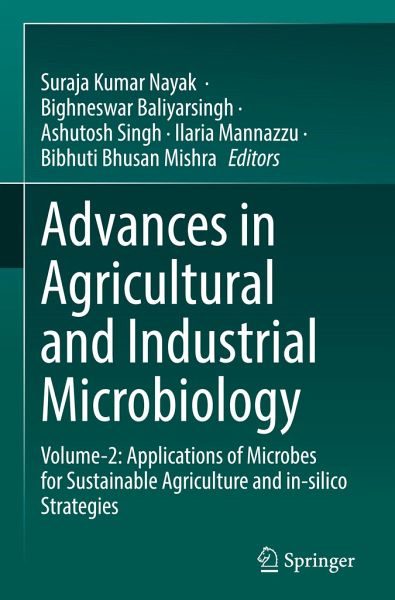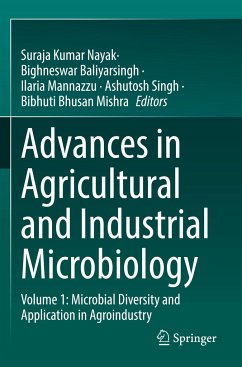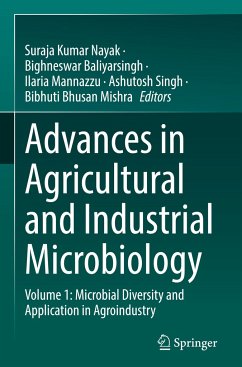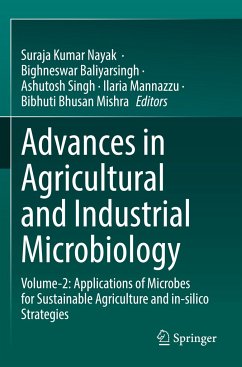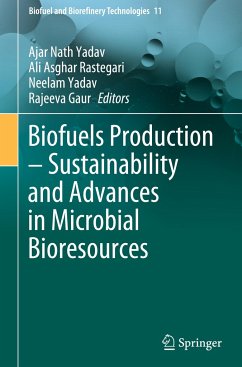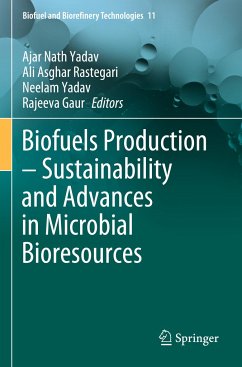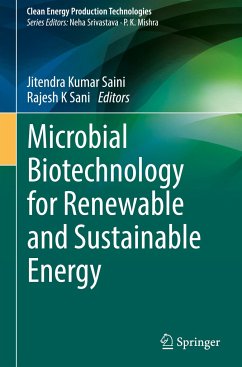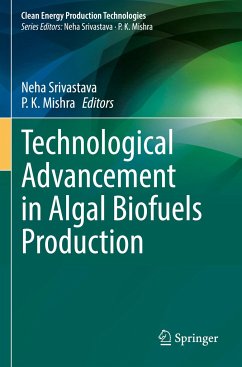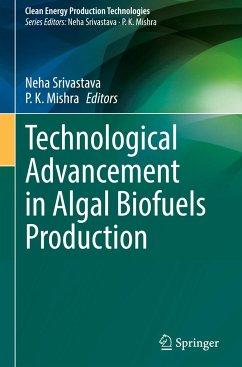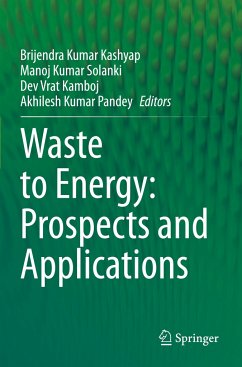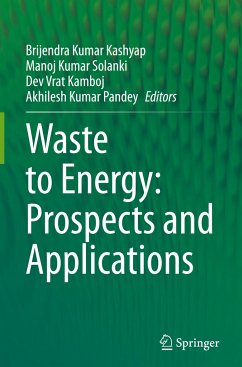Dr. Suraja Kumar Nayak obtained Ph.D. from Odisha University of Agriculture and Technology in 2013 and is presently working as Assistant Professor, Department of Biotechnology, Odisha University of Technology and Research (formerly College of Engineering and Technology), Bhubaneswar, Odisha, India. Dr. Nayak has 09 years of teaching and research experience in the field of Microbiology and Biotechnology. His areas of teaching and research include general and environmental microbiology, soil & agricultural microbiology, industrial and food biotechnology, microbial biotechnology. Dr. Nayak has 20 publications including book chapters in various journals and publishers of national and international repute (h-index: 07 and Citation: 300 in Google Scholar). He has also submitted 06 accession no. to NCBI, USA and has presented papers in various national and international conferences. He has edited 3 books in microbiology and biotechnology published by national and international publishers. 05 numbers of M.Tech and more than 15 B.Tech students have successfully completed their dissertation under his guidance and presently two more are actively working. Dr. Nayak has 20 publications including book chapters in various journals and publishers of national and international repute. Bighneswar Baliyarsingh, Ph.D., is an academician, educator and researcher, working as Assistant Professor, Department of Biotechnology, Odisha University of Technology and Research (formerly College of Engineering and Technology), Bhubaneswar, Odisha, India. He obtained one of his postgraduate degrees, M. Sc. in Biotechnology, from Ravenshaw University, Cuttack, India followed by M. Tech in Biotechnology from West Bengal University of Technology, Kolkata, India, sponsored by Dept. of Biotechnology (DBT), Govt of India in the year 2007. He has gained research and industrial work experience by serving in different institutes like ICAR-NRRI-Cuttack, Bose Institute-Kolkata, AIIMS-New Delhi with brief industrial exposure through BCIL-BITP, sponsored by DBT, Govt. of India. He has qualified CSIR-UGC National Eligible Test (NET) in year 2007. He has successfully supervised good number of M. Tech and B. Tech dissertation works, continuously. He has published more than 15 articles including research papers, reviews and book chapters in various journals and publishers of national and international repute (h index: 4 in Google Scholar). Ilaria Mannazzu, Ph.D. in Microbial Biotechnology, was promoted to associate professor in Microbiology at the University of Sassari, Sassari, Italy in 2001 and professor of microbiology in 2014 she obtained the National Academic Qualification as full professor of Microbiology. Her teaching activity mainly involves General Microbiology, Microbial Biotechnology and Food Microbiology and includes master and doctoral seminar courses. Her research interests cover the biodiversity, physiology and genetics of microorganisms of biotechnological relevance, mainly Saccharomyces cerevisiae and non-conventional yeasts. Also her research activity focuses on: (i) microbial interactions for the development of natural antimicrobials; (ii) Saccharomyces cerevisiae and non-Saccharomyces yeasts in wine and beer; (iii) fermentative stress response in wine yeasts; (iv) biotechnological production of primary and secondary metabolites; (v) heterologous expression of microbial proteins. She has coauthor of 75 publications in international peer reviewed journals with 4244 citations (h index 27, www.scopus.com as on today), 10 book chapters, and more than 100 communications, proceedings and posters presented at national and international conferences and papers in technical journals. She has been invited as a speaker at many national and international conferences. She is also a reviewer of many international journals, member of the editorial board of Fermentation (MDPI), Microorganisms (MDPI) and World Journal ofMicrobiology and Biotechnology (Springer) etc. Member of the teaching board of the School of Doctorate in Agricultural Sciences of the University of Sassari, she participates to the preparation of the doctoral degree study programme in Biophysical Chemistry of Brno University of Technology, Czechia. She represents the University of Sassari in the General Assembly of MIRRI IT-JRU and she is a member of Società di MicrobiologiaAgraria, Alimentare e Ambientale (SIM3A) and of the Italian Group of Wine Microbiology. Dr. Ashutosh Singh is presently working as Associate Professor in the School of Engineering at the University of Guelph, Canada. After completing B.Tech.in Biotechnology from Vellore Institute of Technology, India in 2007, he obtained M.Sc. and Ph.D. degree in Bioresource Engineering, from McGill University, Canada in 2010 and 2014 respectively. Before joining the University of Guelph, he worked as a Postdoctoral Fellow at Dalhousie University, Canada from 2014 to 2015 and later joined McGill University as a Research Associate. Dr. Singh's research work involves the development of novel food processing methods and the use of physical, chemical, engineering, bioinformatics and biotechnological tools to improve the understanding of the nutritional component of food at the molecular level. In recent years his research group has expanded the research areas to include the development of non-destructive food quality and safety testing techniques using ATR-FTIR and NIR. His research group also works in the area of design, fabrication and application of microfluidic electrochemical, Quartz-Crystal Microbalance (QCM) and colorimetric biosensors to identify food allergens and toxins. Till date he and his research group members have published over 50 research articles (Citation: 1004, h index: 18 and i10-index: 23 (Google Scholar)). Prof. Bibhuti Bhusan Mishra is presently working as President, Odisha Bigyan Academy under Scienceand Technology Department, Government of Odisha, India. He obtained M. Phil. and Ph.D. Degree in 1983 and 1987 respectively from Berhampur University, Odisha. He served as ICAR-Emeritus Professor at P.G. Department of Microbiology, College of Basic Science & Humanities, Odisha University of Agriculture and Technology, Bhubaneswar, Odisha, India after superannuation in 2018 for three years and Emeritus Professor OUAT from 2021. He has more than 40 years of teaching and research experience. Thirteen numbers of students have been awarded doctoral degree under his supervision in the field of environmental, soil and agricultural microbiology from various Universities across India and currently 02 are actively working. In addition, he has supervised more than 30 P.G. students. He has more than 75 publications including book chapters and research manuscript in various journals of national and international repute (h-index: 22 and Citation: 1635 in Google Scholar). He is credited with 25 accession numbers submitted to NCBI, USA. He has contributed research article and book chapters in many more edited books pertaining to environmental, soil, agricultural and industrial microbiology. He has edited 8 books in microbiology and biotechnology published by national and international publishers and 1 text book on Botany practical. He successfully completed 1 Major project funded by the University Grants Commission (UGC), Govt. of India and was the Chief Nodal Officer of a project funded by the Rastriya Krishi Vikash Yojana (RKVY) on 'Establishment of Biofertilizer Production Unit', Govt. of Odisha amounting to 150 Lakh. He is a recipient of 'Best Teacher Award' from the University in 2012, from the College of Basic Sciences & Humanities in 2015 and from Odisha Botanical Society in 2018. For significant contributions in microbiology, he was conferred with Prof. Harihar Pattnaik memorial award by the Orissa Botanical Society in 2016.
